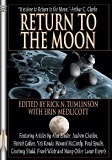FAQ #22: What about defense? Does recognizing a Lunar land claim obligate the U.S. miliary to defend the settlement?
No! U.S. recognition of Lunar land ownership means its courts, not its military, must defend ownership. At the most, the U.S. might impose economic sanctions against any aggressor, if there ever were one, which there almost certainly won't be.
Settlements themselves will issue land deeds, settle internal disputes, handle their own internal security and, in later years, their own defenses as needed. But aggression is not going to be the problem it would be on Earth, because it really wouldn't pay economically. Hollywood movies notwithstanding, it really isn't going to be like the Old West because it's so much harder to get to and from the Moon, or to hide once you're there.
The dollar value of the land, at least in the early years, is its market value on Earth - its saleability to speculators and investors on Earth, - and no one would buy stolen land from someone who is not the recognized owner. So the very act of stealing Lunar land makes it instantly worthless.
It makes overwhelmingly better sense to buy land from the first settlement - which will be eager to sell land and/or provide transportation to and from the Moon at reasonable prices, - than to spend billions of dollars building one’s own space line and then waste it mounting a war of aggression to steal already claimed land. Anyone who had such ships could use them to establish a whole new legitimate settlement, rather than fighting to steal some of the 4% of the Moon in the first settlement.
Similarly, on the individual level, early Lunar settlements, unlike Old West gold rush mining camps, will not have a problem of stronger neighbors kicking weaker neighbors off their land. That's because the settlement and space line control everyone's access to and from the Moon, as well as everyone’s oxygen and food supply and ability to ship anything back to Earth. The fact that it could, if it had to, stop refilling an unruly settler's oxygen tanks will make it very easy for a Lunar settlement's small police force to enforce discipline among individual settlers.

Questions & Answers about Lunar Land Claims Recognition
Note: The first 25 FAQs below are reprinted from the Space Settlement Initiative ![]() website.
website.
What is the real purpose of enacting a Lunar land claims recognition law?
What does international law say about private property ownership in space?
Can there be property ownership without national sovereignty?
What if other nations refuse to recognize land claims in space?
Why not allow smaller, limited land claims for easier steps than settlement?
Could lunar land really be worth enough money to make a difference?
What conditions should the US set for recognition of a claim?
How much land should a settlement be able to claim... and why?
Are the weaknesses and compromises in this plan likely to be permanent?
Could other sources of revenue be enough without land claims recognition?
What effect would this have on NASA and the aerospace companies?
More FAQs
The FAQs above cover basic questions about Lunar Land Claims Recognition. The following questions address more advanced issues.
If we really went to the Moon in 1969, why aren't we there now?
What were the assumptions before the Outer Space Treaty, (e.g. Robert Heinlein)?
Will changing how NASA works bring the taxpayers back on board?
Could this law force the US to recognize a foreign government's Lunar land claim?
Would Article VI of the Outer Space Treaty prohibit Lunar land claims recognition?
| Back from What about defense... to Frequently Asked Questions (FAQs) Back from What about defense... to the Space Settlement Institute home page |




